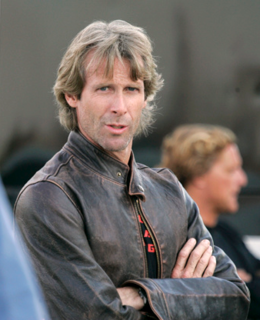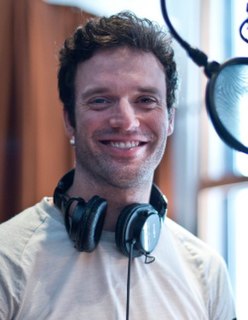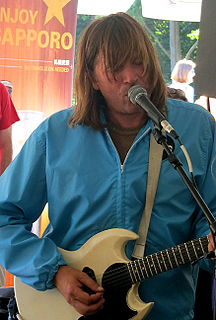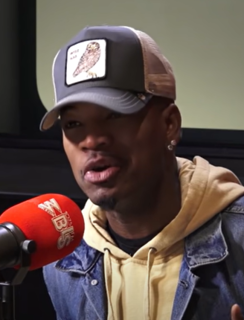A Quote by Jonathan Lethem
I'm not too embarrassed to say I'm the definition of the target audience. This is my generation, the one of exalting music in album form.
Quote Topics
Related Quotes
In an odd way I thought I was lowering the bar for myself, in saying, well, I'll make a pop album. But in a way it's kind of harder to make pop music. It's like the more abstract you get with music, you get into that emperor's new clothes thing, where you can go anywhere, and just claim that your audience may not be prepared to go with you. But with pop music, I think everybody understands the form, everybody knows what it's meant to do. So I would say it's harder to write that kind of music.
It is so important for me to keep authentic Cuban sounds alive. All of these great artists have changed the landscape of Latin music and it's an honor to have them on this album ["90 Millas," released in September of 2007]. I believe this album will expose a new generation to the richness of Cuban music.
If politically infused music is denied airplay, music reviews or festival stage time because it is considered "politics" rather than "art", then there will be no music left to ban. It will never reach the surface anyway, not to the larger audience. I believe that there is a high degree of censorship in the west, most importantly in the form of self-censorship among musicians themselves. This is why what you hear on the radio is - increasingly often - pure and toothless entertainment. Almost by definition, there's nothing left in pop music worth banning.
It must be understood that prime matter, and form as well, is neither generated nor corrupted, because every generation is from something to something. Now that from which generation proceeds is matter, and that to which it proceeds is form. So that, if matter or form were generated, there would be a matter for matter and a form for form, endlessly. Whence, there is generation only of the composite, properly speaking.
I find myself using music metaphors all the time, but this is too perfect, I feel like. Digital downloading is like photographs online. It's great, they're available, you can see lots of different work, but it's a limited experience of the form. A book is like an album. You don't have to have a million dollars to be able to buy it, you have to save some money, you have to buy your album, then you take it home, and you put it on your turntable.
As of right this second my main focus is my new album, it'll be out probably towards the summertime, predominately R&B this time. I had a little stint with the dance music and all of that, which I had a good time with- and I love the audience, I love them for accepting me doing it -but I had to go home on this one. Had to take it back to my roots, and not to say that there won't be one, maybe two songs on there that the dance crowd can get into, but the majority, the girth of the album, will be R&B.
I think, when all bands start, when you're on your first album you have the benefit of hoovering up people who genuinely come across the music and really like it, but also those sort of 'floating voters' who just like pop music when they're young. And I think that when you get to your fourth album, those floating voters have dissipated and you're left with a core audience, and at that point you've really got to get your act together and move on to something else to keep afloat, or you'll just shrink with your core audience.
I wouldn't say that I'm a consummate live artist. Album work is kind of just like quilt weaving or something. But live music is just like a method of emptying out the mind through volume. Volume as a form that allows you to do different things. And that doesn't really translate to recorded music, like how do you listen to that, on Spotify or in your car? It's not the same kind of effect. I would say that the loudness is a huge part of what I do live.







































